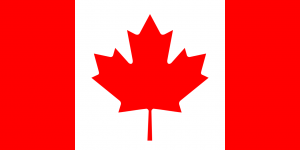
“While DJI is pleased some operating restrictions from earlier Interim Orders have been eased, the draft rules as written would significantly limit safe and responsible drone use,” says DJI’s statement. “The rules would also make it harder for Canadian innovators and entrepreneurs to develop new ways to use drones in business, education, agriculture and public safety, leaving Canada to fall behind in realizing the benefits of drones.”
A primary problem with the new rules is that they “make no distinction between recreational and commercial operations,” which would mean that anyone flying a drone for fun in their yard would need to follow the same regulations as a commercial operation with a large fleet of industrial drones. Such a move would clearly curb the recreational drone industry.
“We are disappointed that Transport Canada has taken an overly restrictive approach for its new proposed drone rules,” said Brendan Schulman, DJI Vice President of Policy and Legal Affairs. “Strong restrictions placed on drones in built-up areas – essentially all locations where people live – overlook the benefits drones can provide to cities and will result in millions of Canadians not having the opportunity to realize the full potential of this emerging technology.”
Schulman pointed to several problems with the draft regulations, including:
- A mandatory $100,000 insurance requirement for any drone that weighs more than 250 grams – less than the weight of two hockey pucks
- A requirement that drones cannot be flown within 100 feet of people, which would instantly make it illegal for millions of Canadians to fly a small drone in their own backyards.
In addition, the draft creates a requirement that manufacturers certify their products to a set of standards (which are, as yet, undefined) before they can be used for certain applications. This would create a significant burden on all manufacturers – and could put smaller manufacturers at a significant disadvantage in the market.
DJI’s Corporate Communications Manager, North America, Adam Lisberg, tells DRONELIFE that the company wants operators to be aware of the potential changes and take the opportunity to comment on the draft. “Millions of people around the world enjoy flying drones safely and responsibly to see the world around them from a new perspective, make amazing photos and videos, and explore the world of science and engineering,” says Lisberg. “But Canadians would face special burdens under these proposed drone regulations, and it’s important that drone enthusiasts in Canada make their voices heard by submitting official comments on just how those burdens would affect their ability to enjoy the skies.”
Comments can be submitted until October 13, 2017 to this address.

Miriam McNabb is the Editor-in-Chief of DRONELIFE and CEO of JobForDrones, a professional drone services marketplace, and a fascinated observer of the emerging drone industry and the regulatory environment for drones. Miriam has penned over 3,000 articles focused on the commercial drone space and is an international speaker and recognized figure in the industry. Miriam has a degree from the University of Chicago and over 20 years of experience in high tech sales and marketing for new technologies.
For drone industry consulting or writing, Email Miriam.
TWITTER:@spaldingbarker
Subscribe to DroneLife here.